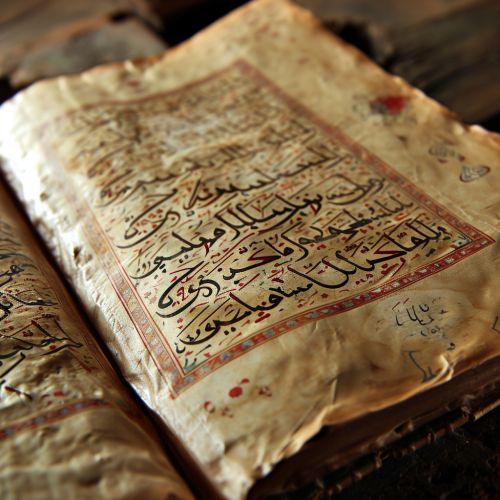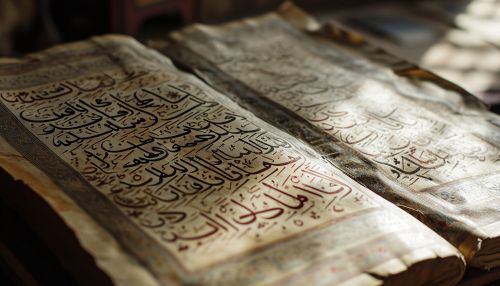Quran
Origins and History
The Quran, also spelled as Qur'an, is the holy book of Islam. It is believed to have been revealed to the Prophet Muhammad by the angel Gabriel over a period of approximately 23 years, beginning in 610 CE, when Muhammad was 40, and concluding in 632 CE, the year of his death. Muslims regard the Quran as the most important miracle of Muhammad, the proof of his prophethood, and the culmination of a series of divine messages that started with those revealed to Adam, including the Torah, the Psalms, and the Gospel.


Structure and Organization
The Quran is divided into chapters (surahs) and verses (ayahs). It comprises 114 surahs of varying lengths, each known by a name and each presented as a separate document. The names of the surahs are derived from a word or quality discussed in the text or from the first letters or words of the surah. Surahs are classified as Meccan or Medinan, depending on whether the verses were revealed before or after the migration of Muhammad to the city of Medina.
Themes and Subject Matter
The Quran discusses various themes and subjects, including theology, morality, guidance for personal conduct, social issues, and legal principles. It provides guidelines for a just society, proper human conduct, and an equitable economic system. It also addresses a wide range of topics, including the existence and unity of God, the resurrection and judgment day, and the histories of previous prophets.
Interpretation and Commentary
Interpretation of the Quran, or tafsir, has been a major field of Islamic scholarship since the time of the Prophet. Tafsir is a body of commentary and explication, aimed at explaining the meanings of the Quran, clarifying its linguistic, historical, and cultural contexts, and reconciling any apparent contradictions or inconsistencies. It is a complex and rich field, with different scholars and schools of thought offering different interpretations of the same verses.
Influence and Impact
The Quran has had a significant influence on literature, culture, law, and belief systems in the Islamic world. It is the primary source of Islamic theology and law. It has also inspired a vast body of literature and profoundly influenced the Arabic language. It is an important reference for understanding the social and political life of the Islamic world, as well as the personal life of every Muslim.
